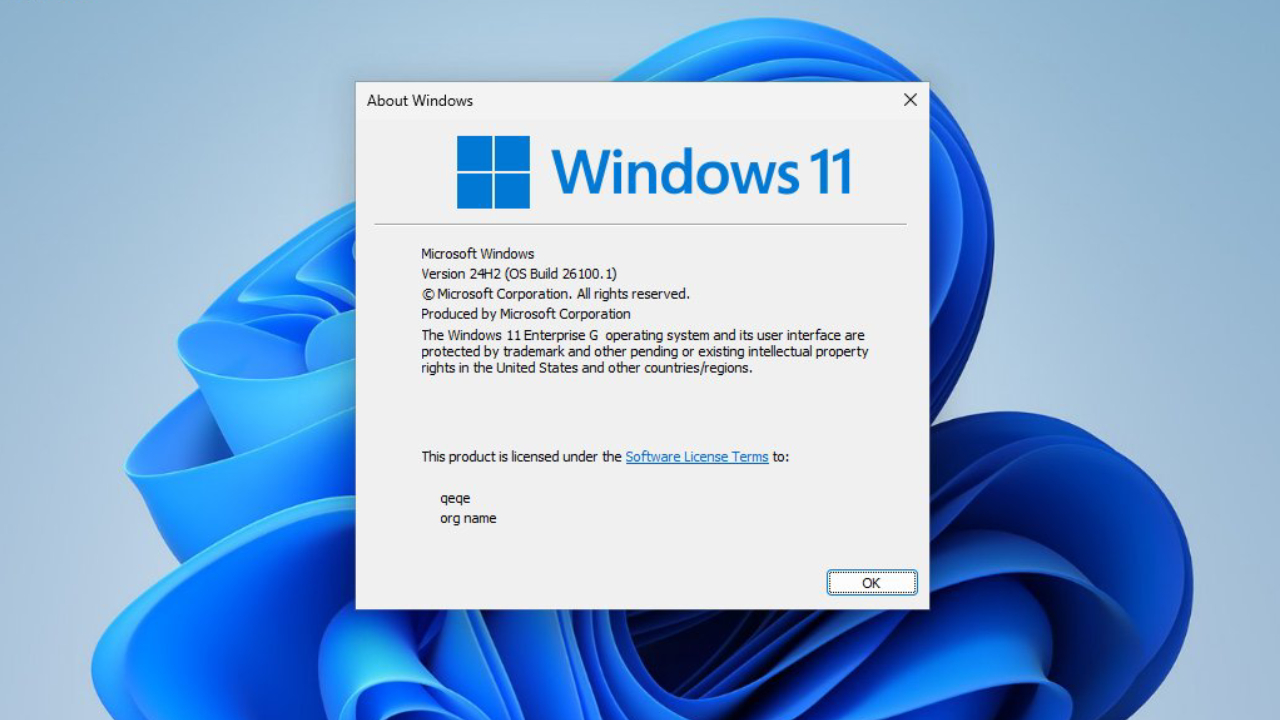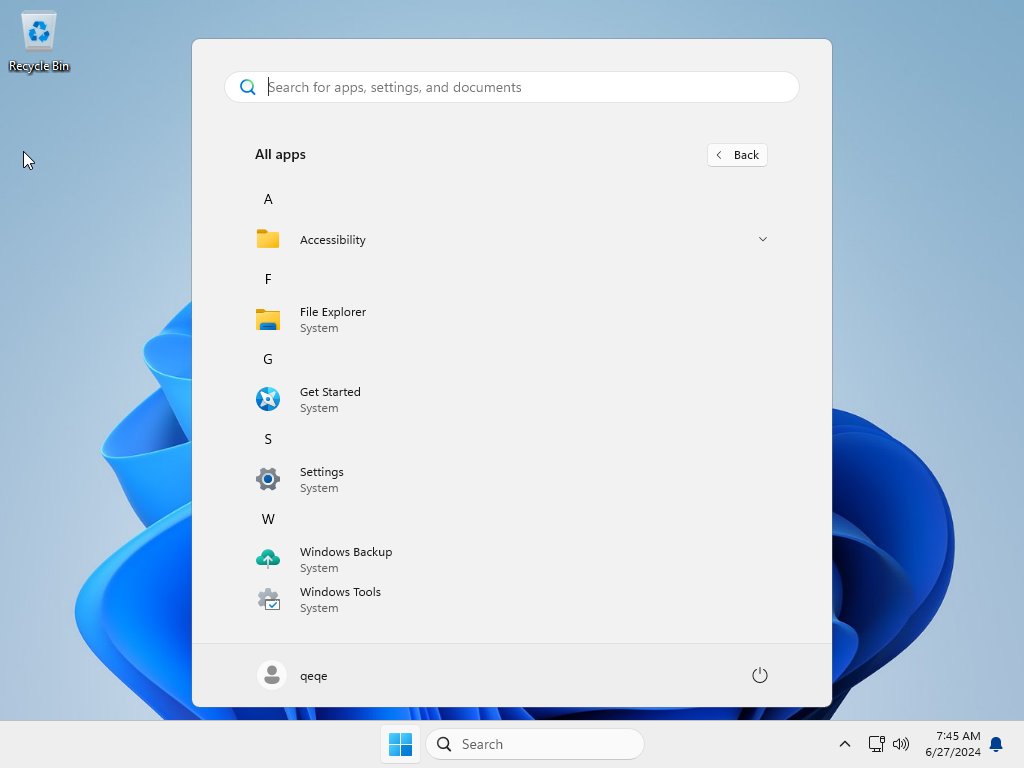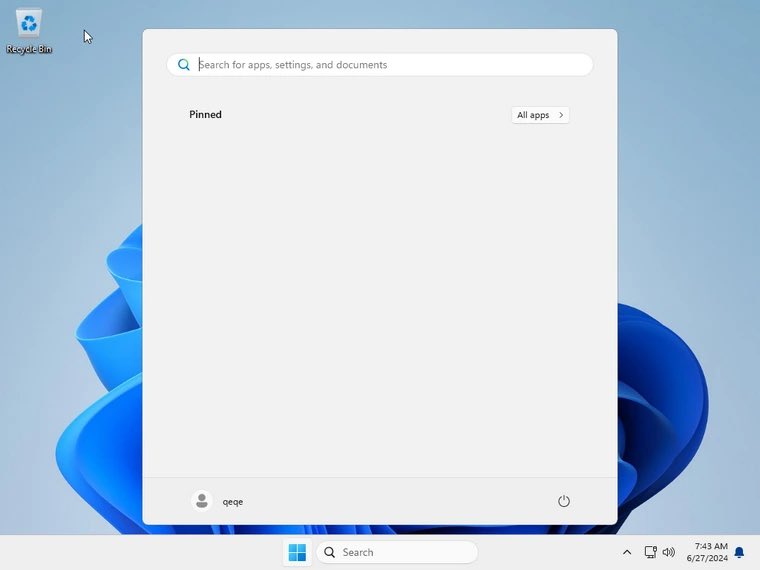
An unofficial, debloated version of Windows 11 took the internet by storm last week after X user Andy Kirby made a post highlighting the minimalist operating system referred to as "Windows 11 Government Edition" on Thursday.
Windows 11 Government Edition, an unofficial version of Microsoft's operating system, focuses on stripping away the unnecessary built-in applications, removing all instances of advertisements, and even removing the operating system's regular hardware restrictions.
The modified Windows 11 platform also no longer features applications like Microsoft Edge or Windows Security. Even simple, seemingly inoffensive, apps like Camera, Media Player, Paint, Clock, and similar are automatically uninstalled.
Microsoft Store is nowhere to be found either, which could pose some trouble as it makes installing new apps trickier for users.
The only apps remaining are File Explorer, Settings, Windows Backup, Windows Tools, and Get Started. Beyond what's installed, the Start Menu is also completely barren. No apps are present, which is again somewhat discomforting.
Keep in mind, Windows 11 Government Edition isn't actually developed by Microsoft, and, for your own safety, we recommend against downloading it for any reason. It simply hit the web and went viral, but that doesn't mean we can't learn an important lesson from its existence: Windows 11 Government Edition should be a real thing Microsoft develops.
Windows 11 Government Edition isn't real, but it should be
Fake or not, Windows 11 Government Edition could not have come at a better time. Microsoft has never been worse at plastering its operating system with advertisements. The company has routinely added advertisements to the Start Menu, File Explorer, lock screen, and when prompting users to "Finish setting up your PC" the real Windows 11 tries to sell an onslaught of Microsoft products.
We put together a list of ways to block every ad in Windows 11, but that's still not enough

Windows 11 Government Edition also allows users to live free of the influence of long-unwanted applications like Microsoft Edge — which isn't only an unremovable fixture, but still intrusively begs users to keep it as their default browser when looking up alternates like Google Chrome or Firefox.
While having Edge uninstalled by default would be inconvenient, users have long wished for the possibility of removing the unpopular browser from their own systems. You may also be wondering "But what if something goes wrong? What if you accidentally uninstall Chrome, or it's not working? Will you just be stuck?" The easiest way for Microsoft to address this is to make Edge easily reinstalled, too. It's already in the Microsoft Store, so it wouldn't be hard to make it uninstallable and easily reacquired through there.
It's not like this future is far off, either. The European Union's Digital Markets Act forced Microsoft to make Edge, Bing, and OneDrive uninstallable from Windows 11 devices in the EU. Unfortunately, this isn't the case elsewhere, but if these sorts of constraints find themselves outside of just the EU, it could spark a huge change for Windows 11.

Copilot+ PCs have also stirred a bit of worry, with a feature like Recall getting lambasted on Reddit for its questionable privacy concerns. Many worry the feature can be used as a way to monitor everything a user does on their computer. This issue won't need a debloated version of the operating system at the very least, as when Recall does officially launch, it can be turned off in the settings.
Even then, it's exhausting having these random new applications thrust onto users that are potentially doing harmful things in the background.
Windows 11 Government Edition won't happen (sort of)
While the idea of this debloated, minimalist version of Windows 11 is appealing to those sick of all the noise, it comes with on unfortunate caveat: It will never happen, at least not in the way you think.
There's no world in which Windows 11 will allow you to ignore its advertisements and new features, and even if that could happen, it won't be free. I imagine those sick of having such a bloated operating system bogging them down aren't going to be too keen on paying extra just to avoid that headache.
The other alternative is that this Government Edition actually stays true to its name and is used in rare instances for officials who need it. In other words, us everyday folk will never get our hands on it.







